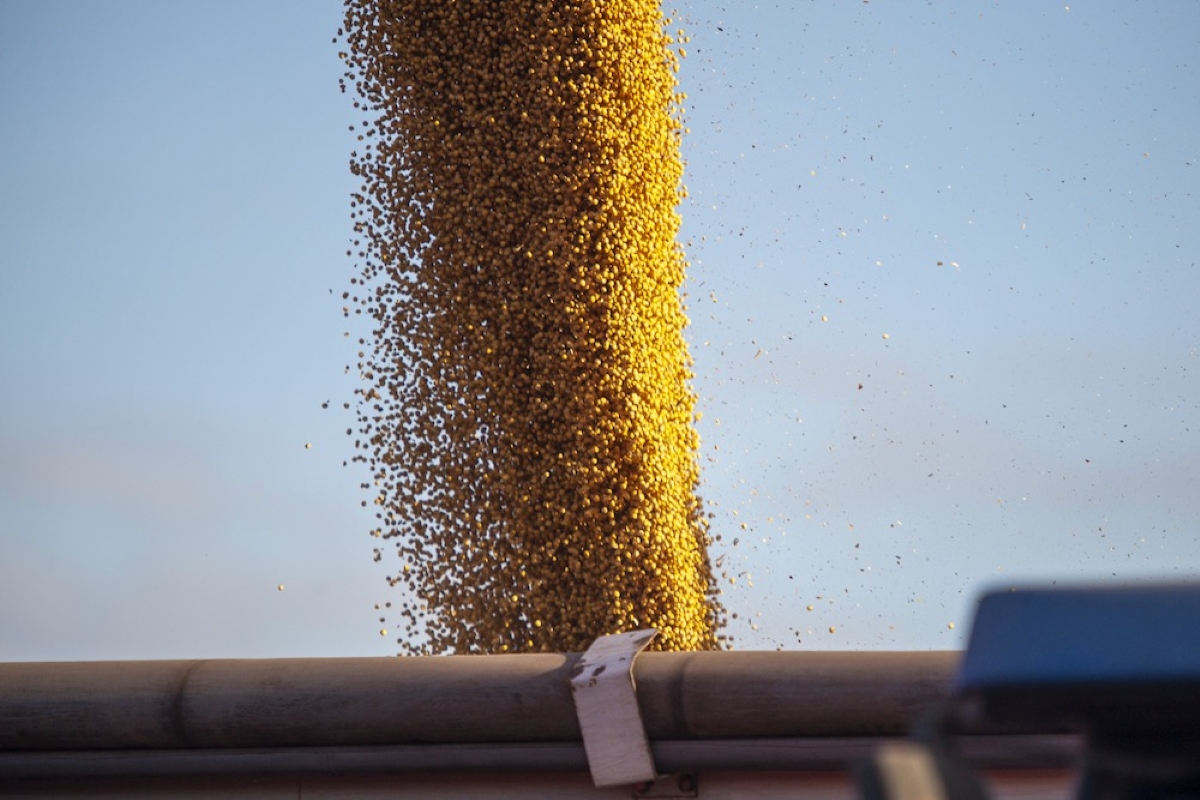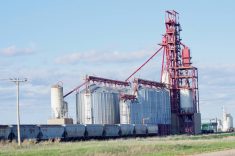MarketsFarm — At this time soybean acres in Canada have been projected to be down this year for a few reasons — not only because of trade issues with China, but also due to back-to-back dry years and declining prices.
Statistics Canada’s 2019-20 principal field crop acreage report, released April 24, estimated 5.65 million acres of soybeans are to be planted in 2019. That’s a 10.6 per cent drop from 2018, but on par with the acres planted four years ago.
Read Also

Brazil to reap record soy crop in 2025/2026, increase exports
Brazil’s Conab said the country will reap a record soybean crop of 177.6 million tons in the 2025/2026 harvest year, according to data released on Thursday.
Ron Davidson, the executive director of Soy Canada, said producers had two terrific years that resulted in acres increasing dramatically from 2016.
Statistics Canada data indicated there were 7.28 million acres of soybeans grown in 2017 — a jump of 30 per cent from the previous year. Those acres produced nearly 7.64 million tonnes of soybeans, with Ontario producing half.
Soybean acres in 2018 slipped to approximately 6.32 million acres for about 7.18 million tonnes produced. Of that, in excess of 58 per cent of production was in Ontario.
There is a possibility of soybean acres increasing in at least some areas of the country. Wet conditions, such as what southern Ontario has seen this spring, could see farmers switch from corn to planting soybeans, said Rob Gamble, chief economist for Grain Farmers of Ontario.
“For the next 14 days it looks like the weather could turn a bit for the better. If the spring continues to be wet and delays corn planting, producers could potentially make that switch to soybeans,” he said.
Recently, China has impeded soybean imports from Canada. Reports stated inspections by Chinese officials that normally took a couple of days were now taking a few weeks. Also, China claimed to have found ants in at least one shipment.
“Officially, the Canadian government has not received information regarding any problems with Canadian soybean exports to China,” Davidson said.
Since the beginning of January, soybean exports have slowed to a trickle with only 11,000 tonnes sent to China, according to the Canadian Grain Commission. At the end of December, Canada shipped about 3.06 million tonnes to China, with over 666,000 tonnes exported that month alone.
Gamble indicated farmers could further alter their planting intentions because of uncertainty surrounding China.
“If the (situation) got worse with respect to China or the current price decline continues further, you can see changes for sure,” he said.
Davidson noted China imposed a 25 per cent tariff on U.S. soybeans, which forced a steep drop in prices between May and July 2018.
“Canada does have a basis, which lets our price vary a little bit from U.S. prices. We were severely impacted by the world prices on the market,” he said.
So far this week alone, soybean prices on the Chicago Board of Trade have been sliding downward. At the close of trading Thursday, soybeans lost more than eight cents to close at US$8.43 per bushel.
— Glen Hallick writes for MarketsFarm, a Glacier FarmMedia division specializing in grain and commodity market analysis and reporting.
Table: Soybean planted-area projections for 2019 by province, in thousands of acres. Source: Statistics Canada.
| Province. . | 2019. . | 2018. . | Change (%) |
| Ont. | 2,905.9 | 3,020.0 | -3.8 |
| Man. | 1,571.1 | 1,890.0 | -16.9 |
| Que. | 845.7 | 915.0 | -7.6 |
| Sask. | 240.0 | 407.5 | -41.1 |
| P.E.I. | 41.0 | 41.0 | 0 |
| Alta. | 14.2 | 18.3 | -22.4 |
| N.B. | 14.0 | 14.0 | 0 |
| N.S. | 13.8 | 13.8 | 0 |
| B.C. | 0.5 | 0.5 | 0 |















